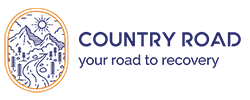Addiction ripples through every relationship, disrupting families, hijacking emotions, and feeding cycles of fear, guilt, and shame. If you love someone who struggles with substance abuse, you may already know that—but you may not know what recovery actually looks like, or where your own healing fits in.
The following are seven truths every family needs to know about addiction, recovery, and what it takes to heal.
Addiction Isn’t Just About Drugs or Alcohol
Many people think addiction is simply a chemical problem. In reality, it’s much deeper. Country Road Recovery’s Clinical Director, Derek Talkington explains, “Drugs and alcohol aren't the problem, and they never have been the problem. They're a symptom of the problem, and the problem was always me.”
Addiction is a disease described as chronic, progressive, and fatal—which means it doesn’t go away on its own, it always gets worse, and if left untreated, it can end in death.
Sobriety is just the beginning. True recovery requires change on every level—emotional, spiritual, relational, and behavioral.
Just Stopping Isn’t Enough
Most people believe that once the drugs or alcohol are gone, life will automatically get better. Unfortunately, that’s not how addiction works. “There are a lot of people that stop drinking, that stop using chemicals, and never change anything else,” Derek says. “They're still miserable. They're still in tons of pain.”
Recovery is more than chemical abstinence—it’s a transformational process. It’s about becoming emotionally stable, spiritually connected, and mentally healthy. Without that change, sobriety alone can still feel miserable (dry drunk)—and that’s not sustainable.
Secrets & Shame Keep People Sick
Shame thrives in silence. Secrets keep you disconnected from other people. It’s not uncommon for people to come into treatment with secret sources of shame. As one client put it, “Those secrets… they’ve kept me sick because they distanced me from other people. What you think you’ve done that’s so bad, isn’t that bad. It’s a normal human thing to have done.”
When someone finally shares those deep, hidden truths with a safe and trusted person, shame loses its power. The antidote to shame isn’t perfection—it’s connection.
Coping Isn’t the Same as Healing
“Coping skills are just positive ways to run from your feelings,” Clinical Director Derek says. “You don’t cope with trauma—you process it. You sit with it. You heal it.”
The danger of relying on coping skills alone is that the pain stays buried. Over time, people often develop cross-addictions—using food, relationships, spending, or exercise in the same destructive way they once used drugs or alcohol.
Everything Comes Back to Fear
Fear is at the root of so many destructive patterns—on both sides of addiction.
Whether it’s fear of being alone, fear of being judged, or fear of loss, recovery involves naming that fear, facing it, and choosing healthier ways to respond.
Addiction Starts Small
Many stories of addiction don’t begin with trauma—they begin with curiosity, or a decision to cross a line just once.
“Every time I stepped over a line, it became a little bit easier to step over the next one,” one client recalls.
That’s why prevention—especially for young people—is so important. Educating teens honestly (without scare tactics) helps them understand the real risks of early substance use on brain development, mental health, and decision-making.
Families Need Their Own Recovery Process
Family members may not realize they’ve been slowly losing themselves—until they’re asked a simple question like, “What’s your favorite coffee?”
“I didn’t even realize until I had to answer that… I haven’t thought about me or what I like or what I want in so long,” one mother says.
Families often sacrifice their own needs, joys, and identities while trying to support someone in addiction. Recovery for families means reclaiming your sense of self, setting boundaries, and learning to let go of what you can’t control. Family therapy can help aid this process.
It’s Never Too Late
If you’re supporting someone in addiction, you don’t have to do it alone—and you shouldn’t. Healing is possible for everyone affected by addiction. But it starts with truth, connection, and the willingness to do your own work, too.
Reach out to County Road Recovery today to get started healing your family.


